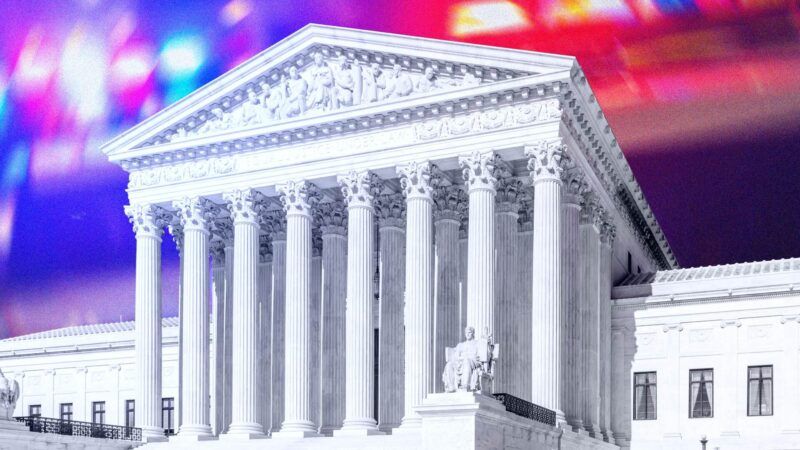A Cop Killed a Suicidal Man and Got Qualified Immunity. Justice Sotomayor Isn't Happy About It.
Qualified immunity "does not protect an officer who inflicts deadly force on a person who is only a threat to himself."

Supreme Court Justice Sonia Sotomayor is reiterating her disdain for qualified immunity—a legal doctrine that protects certain government officials from accountability—decades after the high court legislated it into existence.
In the Court's orders released Monday, Sotomayor objected to her colleagues' refusal to hear a plea brought by the family of a man killed by a police officer. The man "never threatened the officer," Sotomayor notes, and in that moment arguably presented a danger only to himself. The cop got qualified immunity anyway.
"I add only that qualified immunity properly shields police officers from liability when they act reasonably to protect themselves and the public," she wrote. "It does not protect an officer who inflicts deadly force on a person who is only a threat to himself."
Though the stereotype is that such decisions are decided along ideological lines, Sotomayor was alone today. She is not alone, however, in her disdain for qualified immunity. Justice Clarence Thomas is the most reliably outspoken detractor.
In April 2011, New Jersey State Police Trooper Noah Bartelt approached Willie Gibbons, who had been diagnosed with schizophrenia, after he'd just been in an argument with his ex-partner, who had a restraining order against him. Gibbons was pointing a gun at his own temple; Bartelt told Gibbons to drop the weapon. Seconds later, the officer shot him twice, ultimately killing him. It is disputed whether Gibbons ever heard his command or whether the officer gave him enough time to comply.
A suit against the officer originally proceeded past the U.S. District Court for the District of New Jersey, which declined to award Bartelt qualified immunity. The U.S. Court of Appeals for the Third Circuit overruled that, concluding that it was not "clearly established" by prior case law that an officer like Bartelt should have known his actions were unreasonable. Qualified immunity requires that a victim of government abuse find a court precedent that almost exactly mirrors the circumstances surrounding the alleged misconduct.
Cops have been awarded qualified immunity for violating people's First Amendment rights, for shooting someone who was driving away, for killing someone who had been sleeping in his car, for ruining an innocent man's home with explosives, and for physically harming suspects who had surrendered or been subdued. It's not that the behavior was appropriate; it's that no prior court had explicitly deemed it so.
The Supreme Court has declined to hear a spate of qualified immunity cases over the years, including that of a cop who shot a 10-year-old, two cops who allegedly stole $225,000 while executing a search warrant, and two cops who arrested a man on bogus charges after assaulting him on his porch.
Though Sotomayor and Thomas may be the most readily willing to rebuke the doctrine, they are not necessarily alone in their skepticism. In two abnormal moves, the Court overturned two qualified immunity rulings over the last year: The first involved a naked inmate who says prison guards forced him into cells filled with feces and sewage; the second involved a prisoner who says a guard pepper-sprayed him for the fun of it.
Those two plaintiffs will get to resolve the questions of their cases before a jury. Gibbons' family will have no such luck.


Show Comments (57)